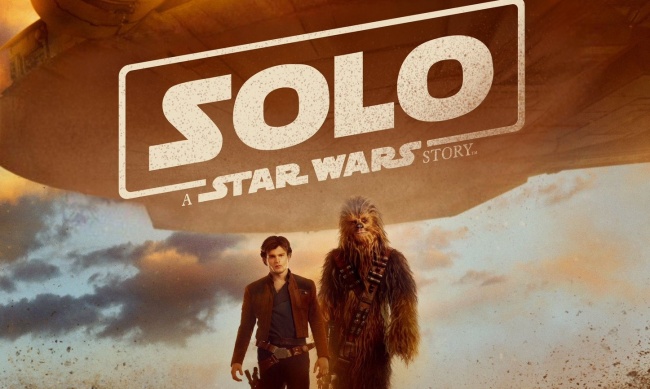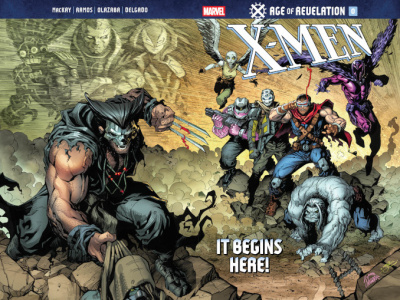Ron Howard’s Han Solo origin story, Solo: A Star Wars Story may have won the weekend box office crown, but executives at Disney had a Pyrrhic Victory on their hands as the pricy Star Wars spin-off earned just $83.3 million for the 3-day frame, a little more than half of what the previous Star Wars side-story film, Rogue One, amassed in its debut in 2016 ($155 million), and well under the $120-130 million dollar estimates of many analysts. Even with a new Star Wars film opening, and the superhero black comedy Deadpool 2 in just its second weekend, the total box office was down slightly from Memorial Day in 2017 when the lackluster Pirates of the Caribbean 5 topped the charts with almost $63 million for the 3-day portion of the holiday weekend.
How can a film that opened with a North American opening estimated $101 million (over the full 4-day holiday) and $65 million overseas be considered a flop? Well consider that each of the 3 previous Disney/Lucasfilm Star Wars movies earned over a billion dollars, while Solo will likely struggle to earn half of that total. Also remember that Solo was developed by the directing team of Christopher Miller and Phil Lord (The Lego Movie, 21 Jump Street), who were replaced after shooting had started by Ron Howard, a process that necessitated reshoots and ballooned the film’s budget to a reported $300 million (before prints and marketing).
Has Disney been caught going to the well once too often (Solo opened a scant four months after Rian Johnson’s The Last Jedi left the theaters, where previously Disney had opened its Star Wars films in December, a full year apart)? Was fan dissatisfaction with The Last Jedi more widespread than analysts believed? Unlike say Pirates of the Caribbean 5, which earned a franchise low $172 million here in North America, but a whopping $794 million overseas, the Star Wars franchise has always had to rely more on North America. Solo’s $65 million overseas debut is especially bad because the film opened in every major territory in the world except Japan, so overseas earnings won’t be coming to the rescue (Solo earned just $10 million in China, a very poor showing in the world's second biggest market).
The good news for Solo is that it will face little in the way of blockbuster competition until Jurassic World: Fallen Kingdom opens on June 22. And while Solo’s CinemaScore was down from those of the 3 previous Disney Star Wars films, it was still a solid “A-,” and Solo has a decent 72% positive rating on review aggregator Rotten Tomatoes. The audience for Solo skewed male (58%), and a bit younger than previous Star Wars entries with 64% of the crowd over 25. Still with its weak debut, even if it recovers a bit over the next few weeks, Solo will have a hard time clawing its way to anything representing profitability.
Second place went to Fox’s Deadpool 2, which dropped a precipitous 66% from its strong debut, earning and estimated $42.7 million over the 3-day frame, driving its domestic total to $207.4 million. This drop-off is nearly identical to that of Godzilla (2014), and just a bit better than that of Alien: Covenant (-70% in 2017). The good news for Ryan Reynolds and all the folks at Fox is that, even if it does suffer a swoon over the next few weeks, Deadpool 2 will finish this weekend with over $500 million worldwide, which given the film’s modest $110 million cost, means that it is already profitable. However, the extent of the domestic drop-off in final totals for Deadpool 2 versus the original Deadpool will be closely scrutinized by studio officials—especially since in this case the sequel was just as good a film as the original.
Disney moved Avengers: Infinity War back a week from its original May 4 opening in order to avoid competing with Solo, which the studio had long planned to launch over Memorial Day. That strategy failed as Infinity War, now in its fifth weekend in theaters, earned a healthy $16.5 million over the 3-day holiday to drive its domestic total to $621.7 million. While Infinity War might not catch Black Panther, which is flirting with $700 million domestic, it has currently earned $1.9 billion worldwide, making it the #1 film of the year so far, and the fourth largest release of all time (not adjusted for inflation).
Book Club, a clever bit of counter-programming aimed at older women, continues to do well, earning $9.4 million for the 3-day weekend, and an estimated $12 million for the full holiday frame. Also doing better after a bit of slow start, was the Melissa McCarthy comedy Life of the Party, which added $6.5 million for an 18-day total that should reach $40 million.
Fizzling out quickly was the animated Show Dogs, which averaged just $948 per venue in its second weekend, while at the opposite end of the “legs” spectrum, John Krasinski’s innovative horror film A Quiet Place remained in the top ten for the eighth weekend in a row as the $17 million production drove its domestic total to $180 million and its worldwide haul to over $310 million.
Mention should be made of Magnolia’s Ruth Bader Ginsberg documentary, RBG, which should finish the weekend with a domestic total of $6 million, the highest reached so far in 2018 by a documentary.
Be sure and check back here next weekend to see what happens when a trio of new films, including the Johnny Knoxville/Jackass comedy Action Point, the stranded-at-sea survival thriller Adrift, and the science fiction/body horror opus Upgrade, all debut in an already crowded marketplace.

Could Become 1st Disney 'Star Wars' Film to Lose Money
Posted by Tom Flinn on May 27, 2018 @ 4:24 pm CT
MORE COMICS
From Tiny Onion, Dynamite, Image, IDW
July 18, 2025
There are four Humble Bundle deals running right now, from Tiny Onion, Dynamite, Image, and IDW.
From Marvel Comics
July 18, 2025
Age of Revelation, a new status quo taking place 10 years into the future and arising out of current developments in the X-Men titles, begins in October.
MORE COLUMNS
Column by Rob Salkowitz
July 14, 2025
Superman isn't a character who needs a general introduction to the broader public; he just needs an existing global fanbase to take a fresh look.
Column by Scott Thorne
July 14, 2025
This week, columnist Scott Thorne discusses Green Ronin Publishing's GoFundMe to fund its legal fight against Diamond Comic Distributors, and the soft preorders for the latest Horus Heresy box.








